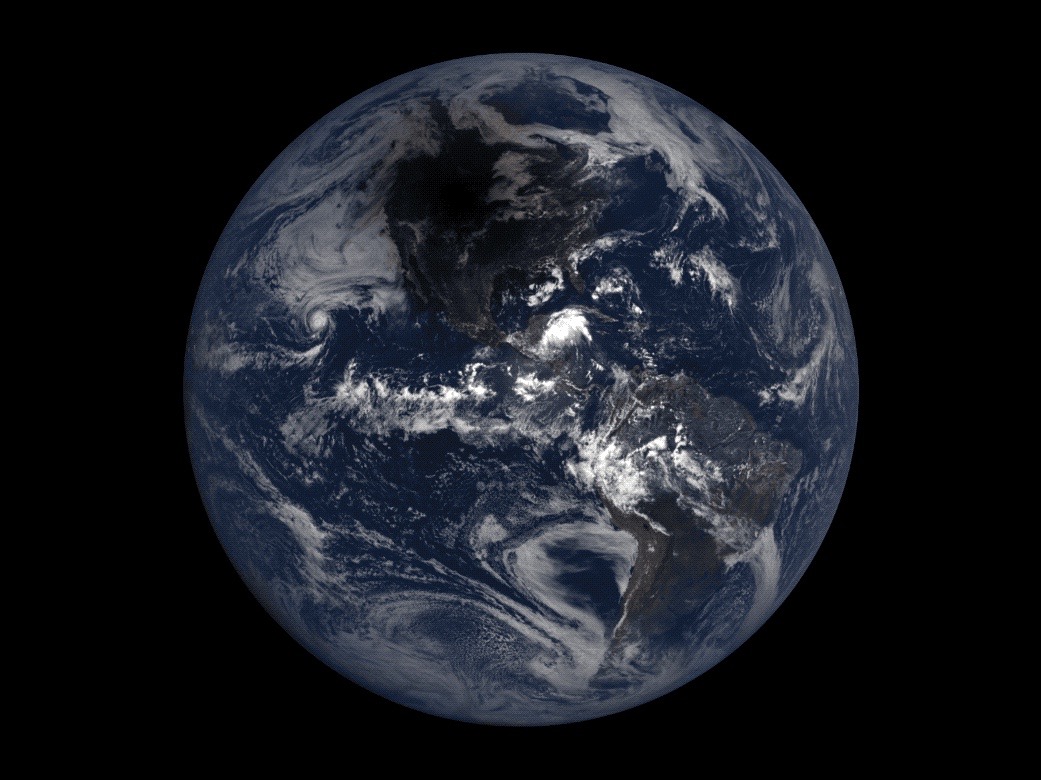'EPIC' Solar Eclipse View Captured from 1 Million Miles Away (Video)
It's one "EPIC" eclipse view: NASA's Earth Polychromatic Imaging Camera, aka EPIC, recorded the moon's shadow crossing the United States yesterday (Aug. 21) from 1 million miles (1.6 million kilometers) away.
EPIC rides through space on the National Oceanic and Atmospheric Administration's Deep Space Climate Observatory (DSCOVR) satellite. The camera usually takes 20 to 22 images of Earth each day — and NASA combined yesterday's photo haul into a gorgeous time-lapse video showing the march of the "Great American Solar Eclipse."
This eclipse was extra-special for the United States, as millions of viewers watched totality cross the nation coast to coast for the first time since 1918. But DSCOVR is always viewing Earth's sunlit side, so it frequently gets the chance to watch the moon's shadow cross Earth during total and annular solar eclipses.

DSCOVR sits at Lagrange Point 1, a gravitationally stable spot between Earth and the sun where spacecraft can more or less "park." The satellite launched in 2015, and its photos allow researchers to track clouds and weather systems' movement across the surface, as well as changes in deserts, forests and seas.
DSCOVR also monitors the levels of ozone and aerosols in Earth's atmosphere; vegetation; and how much ultraviolet light Earth reflects, NASA officials have said. On the sun side, DSCOVR monitors the stream of charged particles flowing away from the sun, called the solar wind.
Email Sarah Lewin at slewin@space.com or follow her @SarahExplains. Follow us @Spacedotcom, Facebook and Google+. Original article on Space.com.
Sign up for the Live Science daily newsletter now
Get the world’s most fascinating discoveries delivered straight to your inbox.










